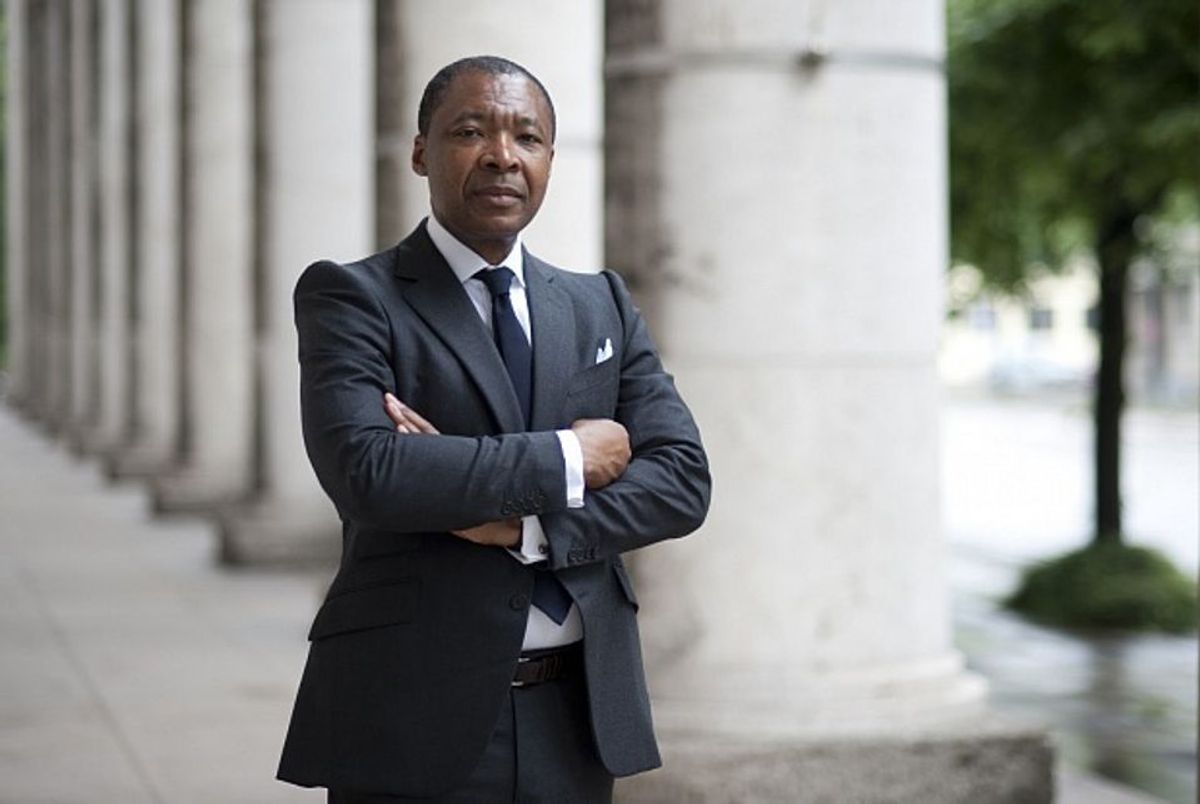Okwui Enwezor, who helped to push the geographical borders of art history and the art world and was the first African curator of Documenta and the Venice Biennale, has died aged 55.
Enwezor stepped down from his post as director of the Haus der Kunst in Munich in June last year for health reasons. Last August, he said in an interview with the German magazine Der Spiegel that he had been battling cancer for three years and had undergone a range of different treatments.
“We have lost a brilliant intellectual, a man of the world whose encyclopaedic knowledge encompassed more than art, and a sensitive advocate of art,” Bavarian Culture Minister Bernd Sibler said in a statement. “I am grateful to him for broadening our perspective.”
Born in Calabar, Nigeria, in 1963, Enwezor studied political science in the U.S. He entered the contemporary art world by founding a magazine focussed on African art in 1994. He curated the Johannesburg Biennale in 1997: other credits include the 2006 Seville Biennial and the 2008 Gwangju Biennial.
He was described by Glenn D. Lowry, the director of the Museum of Modern Art in New York as “an extraordinarily intelligent and insightful man who has opened many people’s eyes” in a 2002 article in the New York Times. That year, as the first non-European artistic director of Documenta, the quinquennial contemporary art exhibition in Kassel, he created what the organisation calls “the first truly global, postcolonial Documenta exhibition.”
He led the Munich Haus der Kunst from 2011 to 2018. The end of his tenure there was tarnished by budgetary shortfalls that the business director blamed on Enwezor’s ambitious exhibition schedule. The last show he curated at the Haus der Kunst opened on 8 March this year, a retrospective of the Ghanaian artist El Anatsui.
UPDATE: This article was updated to include a quote from the Bavarian culture minister


